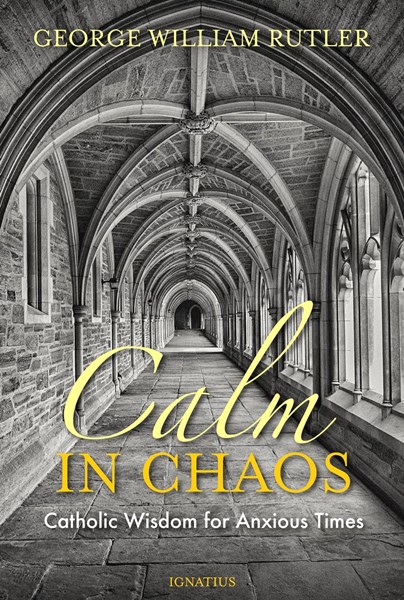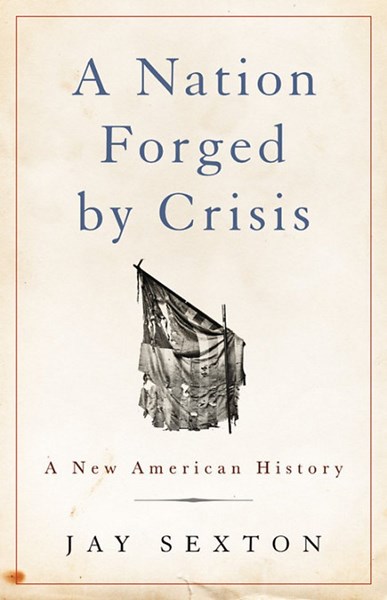
Not only is Father Rutler one of the most brilliant priests in the country; he is also one of the finest writers of the English language today. In this collection of predominantly short essays, many or most of them reprinted or adapted from Crisis Magazine, he shows to his absolute best. His elegant and rather formal (by today’s literary standards) prose bears echoes of Chesterton’s and Evelyn Waugh’s (accurately described by one critic as “chaste”), and his field of reference is perhaps broader than either of theirs. Who else today dares even to flirt with a mildly archaistic style (in places) that is no affectation on the author’s part but rather expresses a mind that acquired its intellectual and artistic sophistication from the cultural wealth of a former era, while exquisitely registering and taking the measure of postmodern culture? A polymath who plays the violin and the piano while ministering to his parish in Hell’s Kitchen, Manhattan, Father Rutler reaches effortlessly for the most esoteric reference, besides availing himself of more obvious, but always pertinent and felicitously chosen, ones. Put simply, his writing has a slightly old-fashioned quality that works. (Of a sculpture at the United Nations, he says, “It was propaganda, but it fairly reminded me of that figure who should be familiar to every schoolboy, Lucius Quinctius Cincinnatus”; chaste English indeed that is reminiscent not only of an earlier day, but of the British civilization from which our own sprang.)
The wider subject, or rather preoccupation, of this book is, as the title suggests, the theological, intellectual, and moral confusion of the Church of Rome since Vatican II, and the chaos to which the Western societies have succumbed. In considering these things, Father Rutler ranges across many subsidiary topics, among them modern liturgical confusion, translating the Latin Mass, President Trump’s speech in Warsaw, the election of 2016 and its aftermath, “the use of brains in a brainless time,” the current persecution of Christians in the Holy Land, “making dogma of unsettled science,” the toleration of terrorism and the excuses offered for its perpetrators, jihadist murder in Paris, and “the mindless iconoclasm of our age.” “If there is one underlying theme in this analysis of the chaos of our times,” he writes in the Introduction, “it is dismay at the lack of historical perspective, as it deprives people of the lessons that should have been learned after present conceits have been found wanting. The gremlin that haunts our times is not heresy as much as it is ignorance.”
In our current intellectual climate, in which irony is generally misread as malignity, true wit is dangerous to anybody, a priest especially. Father Rutler’s wit is keen indeed, and it can be sharp. But, like Chesterton’s, it has a smile behind it, though not GKC’s belly laugh: as in his reference to “the animus of some aging liturgists who thought that the Second Vatican Council defined a whole new anthropological stage in the history of man.” In considering the unwise haste with which that Council conducted itself, he observes that “One problem in the frantic rush for deadlines was the inconvenience of the Italian postal system.” And adds, reassuringly, “There will never be another ecumenical council without email.”
[Calm in Chaos: Catholic Wisdom for Anxious Times, by George William Rutler (San Francisco, CA: Ignatius Press: 232 pp., $17.95]

Professor Sexton’s book refreshingly argues that
The old shibboleth of American “exceptionalism”—that most persistent of national myths, which posits that the course of American history has been the unique product of its internal formations, institutions, and ideology—has obscured the ways in which the volatile forces of global integration have conditioned its development.
Thus, the Revolution was the result of sudden critical developments in the transatlantic trade, in what Sexton falsely calls “migration” (the proper word, of course, is colonization), and in imperial rivalries. Similarly, the increasingly violent debate over slavery in the mid-19th century was affordable in the context of the disappearance of foreign threats to the young American nation, and the New Deal was less the work of President Roosevelt than of the political influence wielded by European immigrants and their progeny whose social and political ideas and interests marked a departure from those of the historical Anglo-Saxon majority. American history, Sexton claims, was not a continuous process but a series of spaced crises separated by lulls, or periods of what President Harding called “normalcy,” many of which were brought on by events overseas and forced a massive—and massively transformational—response by Washington. He foresees the approach of another such crisis. “It is the international dimensions of our current troubles that most suggests we are on the brink of a transformative shift in the underlying tectonic plates of the geopolitical system.”
There is a great deal of truth in this thesis, and if some of it seems rather obvious to anyone well familiar with American history, that is in part on account of the extent to which the concept of American “exceptionalism” has directed the attention of historians and—even more—politicians away from historical realities they have preferred to misunderstand, or ignore. (CW)
[A Nation Forged by Crisis: A New American History, by Jay Sexton (New York: Basic Books) 256 pp., $27.00]
Leave a Reply